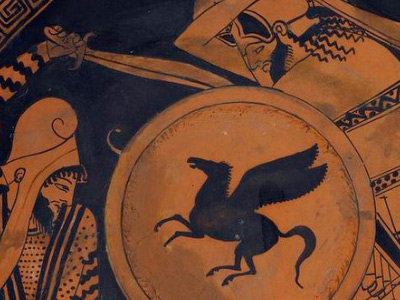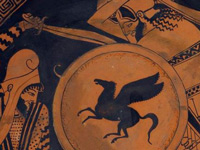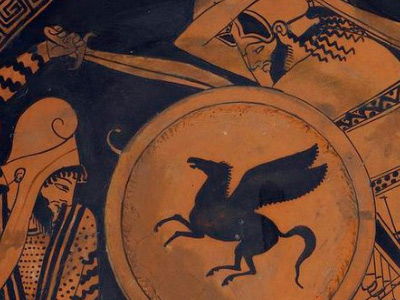Battle of Plataea (479 BC)

Aftermath
According to Herodotus, the Battle of Mycale occurred on the same afternoon as Plataea. A Greek fleet under the Spartan king Leotychides had sailed to Samos to challenge the remnants of the Persian fleet. The Persians, whose ships were in a poor state of repair, had decided not to risk fighting and instead drew their ships up on the beach at the feet of Mount Mycale in Ionia. An army of 60,000 men had been left there by Xerxes and the fleet joined with them, building a palisade around the camp to protect the ships. However, Leotychides decided to attack the camp with the Allied fleet's marines. Seeing the small size of the Greek force, the Persians emerged from the camp but the Greek hoplites again proved superior and destroyed much of the Persian force. The ships were abandoned to the Greeks, who burned them, crippling Xerxes' sea power and marking the ascendancy of the Greek fleet.
With the twin victories of Plataea and Mycale, the second Persian invasion of Greece was over. Moreover, the threat of future invasion was abated; although the Greeks remained worried that Xerxes would try again, over time it became apparent that the Persian desire to conquer Greece was much diminished.
The remnants of the Persian army, under the command of Artabazus, tried to retreat back to Asia Minor. Travelling through the lands of Thessaly, Macedonia and Thrace by the shortest road, Artabazus eventually made it back to Byzantium, though losing many men to Thracian attacks, weariness and hunger. After the victory at Mycale, the Allied fleet sailed to the Hellespont to break down the pontoon bridges, but found that this had already been done. The Peloponnesians sailed home, but the Athenians remained to attack the Chersonesos, still held by the Persians. The Persians in the region, and their allies, made for Sestos, the strongest town in the region, and the Athenians laid siege to them there. After a protracted siege Sestos fell to the Athenians, marking the beginning of a new phase in the Greco-Persian Wars, the Greek counterattack. Herodotus ended his Histories after the Siege of Sestos. Over the next 30 years the Greeks, primarily the Athenian-dominated Delian League, would expel (or help expel) the Persians from Macedon, Thrace, the Aegean islands and Ionia. Peace with Persia came in 449 BC with the Peace of Callias, finally ending a half-century of warfare.
HISTORY

RESOURCES
This article uses material from the Wikipedia article "Battle of Plataea (479 BC)", which is released under the Creative Commons Attribution-Share-Alike License 3.0.
© Stories Preschool. All Rights Reserved.









